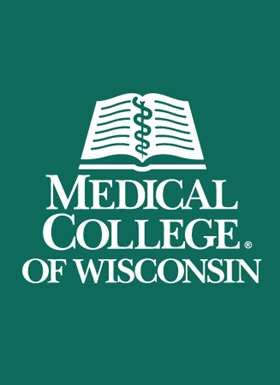Medical College of Wisconsin Adult Neurology
The Adult Division of Neurology provides patient care in all subspecialties of our field including the areas of Parkinson’s, Movement Disorders, Stroke, Headache Medicine, Autonomic Disorders, Neuromuscular Diseases, Epilepsy, General Neurology, Neurocritical Care, Multiple Sclerosis, ALS and Sleep Disorders.
The Adult Division of Neurology provides patient care in all subspecialties of our field including the areas of Parkinson’s, Movement Disorders, Stroke, Headache Medicine, Autonomic Disorders, Neuromuscular Diseases, Epilepsy, General Neurology, Neurocritical Care, Multiple Sclerosis, ALS and Sleep Disorders.
Adult Inpatient Care is provided by specialized care teams who cover epilepsy, stroke and all other neurological problems. Another group of physicians cares for critically ill patients in the Neurointensive Care Unit. We use six rooms on the inpatient ward for EEG-Video monitoring of patients with seizures and to identify individuals who may benefit from surgical resection of epileptic brain foci. Candidates for such invasive procedures are carefully selected by a team that also includes neurosurgeons, neuropsychologists and specially trained nurses.
Electrophysiological capabilities in the Adult Division include standard methodologies for EMG, Nerve-Conductions, EEG and Evoked potential studies.
We further provide electrophysiologic monitoring during a wide variety of procedures, including spine surgery, brachial plexus exploration, epileptic focus resection and during the implantation of deep brain stimulators (DBS). The Adult Division also runs an autonomic lab that offers advanced and innovative test capabilities. The spectrum of lab services in the Adult Division is rounded out by a sleep lab, and a muscle and nerve pathology laboratory. We obtain our own skin, nerve and muscle biopsies and analyze the samples with light, confocal and electron microscopy.
Adult Division physicians have variable clinical and research engagements. Some are full time clinicians while others have extensive research commitments. We work closely with our own group of PhDs and collaborate with basic scientists from the Medical College of Wisconsin. A large proportion of clinicians are involved in drug studies, particularly in the fields of dementia, movement disorders, MS, ALS, Stroke and epilepsy.
Physicians of the Adult Section of Neurology work closely with a group of outstanding residents, fellows, nurse practitioners, physician assistants and nurses. Their daily contributions enable us to continue providing high quality care and participate in research and the training of new physicians. We are committed to translate our own research and the rapid advances in the Neurosciences into therapeutic benefits for our patients.
Meet Our Team























Advanced Practice Providers






